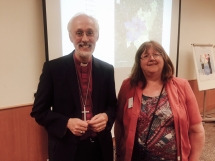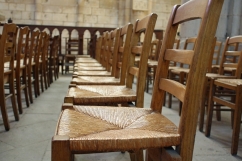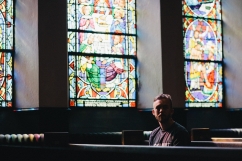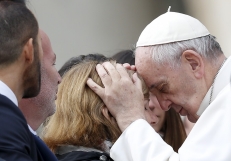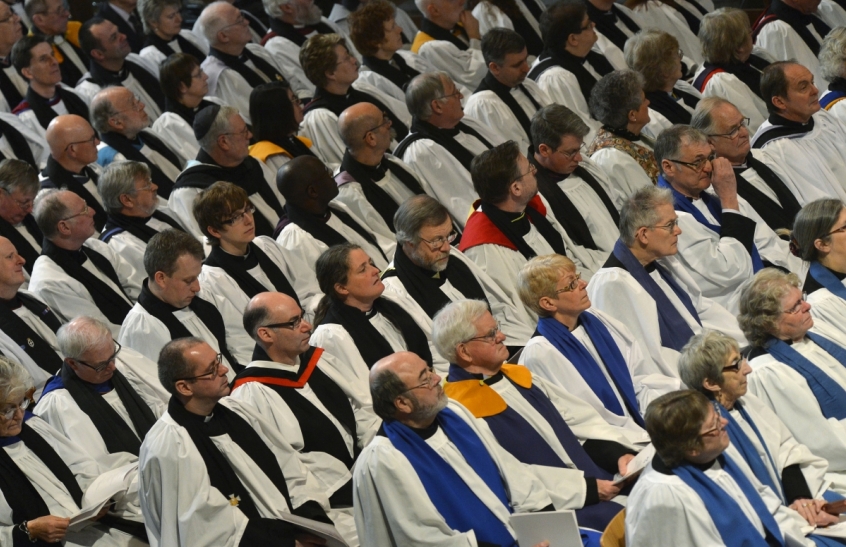
One in four clergy in the Church of England is aged over 60 and just 13 per cent are under 40, according to new figures released today.
The ministry statistics show a potential future crisis for the Church. Although numbers being ordained have increased in the last four years, they are still too low to replace the large numbers of retiring baby-boomer clergy.
Overall, the statistics show more than 20,000 ordained people are serving the Church in various roles, a number that has remained stable over the last four years. But the figures show the Church's growing reliance on unpaid clergy, as the number of stipendiary clergy has fallen from 8,300 to 8,000 between 2012 and 2015.
Women clergy have also increased from 24 per cent in 2012 to 27 per cent of the total in 2015. And 19 per cent of senior staff in 2015 were women, up from 12 per cent in 2012.
The number of clergy from black and minority ethnic communities has however barely grown, up from just three per cent in 2012 to 3.4 per cent in 2015.
Church of England director of ministry Julian Hubbard said: "While the number of stipendiary ordinations showed a welcome increase between 2012 and 2015, this is not sufficient to redress the gathering effect of clergy retirements predicted over the next 10 years.
"The statistics on the age and ethnicity of clergy show that we still have some way to go to ensure that the whole cohort fully reflects the demographics of the wider community.
"The good news is that there is a growing readiness to meet these challenges."
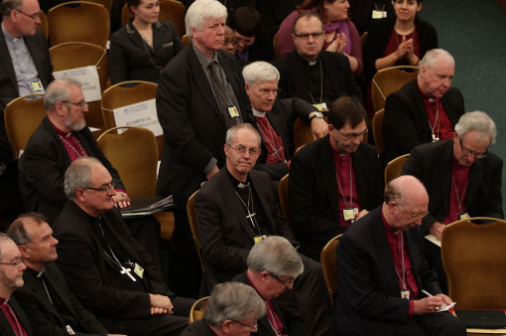
He warned that with 25 per cent of stipendiary clergy aged 60 or over, at present rates of ordination this trend will have a "material and growing impact" on the number of those available to serve in ordained roles across the dioceses.
He said he viewed the figures as a "baseline" from which to move forward from a pattern of gentle numerical decline into growth.
"Some dioceses have adopted strategies for growth in the number of candidates for ministry and of the kind which they need for current and future mission need.
"They are already showing encouraging signs of increase."
Mike Eastwood, director of Renewal and Reform, set up to find a strategy to combat falling church attendance, said: "These figures support what we have been saying about the need for renewal and reform in the Church of England."
He added the group was "currently consulting on how we better release the gifts of all Christian leaders in church and wider society, whether ordained or not".
Renewal and Reform is already working on plans for an overall increase of 50 per cent in ordinands by 2020 and to nurture vocation particularly among young people and those of black, Asian and minority ethnic backgrounds.
Rev Peter Ould, an evangelical Church of England priest and statistician, said: "This highlights the challenge facing parishes up and down the country as in some places over 40 per cent of clergy are due to retire over the next decade. It's encouraging to see the Church respond with an increasing number of younger people being ordained year on year, but despite this there is the real possibility of some dioceses running out of priests.
"The Renewal and Reform programme, together with local based lay initiatives across the country like Thy Kingdom Come a few weeks ago, demonstrates that at a national level the Church of England is finally engaging with these issues and trying to shape ministry for the 21st century."










